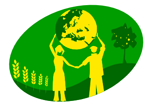Open letter – Milk Powder in favour of real milk to produce healthy dairy products

Brussels, 2 November 2015
Mr. Phil Hogan
Commissioner for Agriculture and Rural Development
European Commission
B-1049 Brussels
Open letter – Milk Powder in favour of real milk to produce healthy dairy products
Dear Commissioner Hogan,
Since 1974, before the establishment of the Single CMO, law 138 has been in force in Italy, prohibiting the reconstitution of milk for human consumption. In short, the law prohibits the use of milk powder for the production of cheese and other derivatives. In May 2015 the European Commission asked the Italian authorities to change this law, claiming that it creates a distortion of the market. At the end of September, the Italian government rejected the European request and announced its intention to maintain the current legislation, asserting that it does not distort the market because it restricts the production, not the trade, of products made with powdered milk on the Italian territory.
The European Coordination Via Campesina (ECVC) supports the decision taken by the Italian authorities and commends the Italian approach to maintaining quality in dairy products. The characteristics of its products and their traditional aspects -which are part of Italy’s great culinary heritage- represent the strengths of Italian dairy production. We believe it is essential to safeguard them.
ECVC proposes that the standards set forth by Italian law 138 should be extended to all European countries in order to have better quality products and improve the condition of markets for dairy products in the EU. The overproduction of milk in Europe -a result of agricultural policies in place since the 1970s – have caused the widespread transformation of milk into milk powder by those countries with surplus production. The Italian prohibition on the use of powdered milk to produce cheese and dairy products on its territory prevents the invasion of the market by this commodity. This protects prices for farmers and has helped the Italian dairy sector to survive, even though Italy imports more than 40% of its milk and dairy products.
Over the years, powdered milk has become an ingredient in many industrial products, from desserts to cured meats. The stable nature of powdered milk allows processors to control the market and gives them significant power over milk prices. This has not brought any benefits to European farmers. On the contrary, half of the dairy farms in Europe have been forced to close since 2000.
The push for unlimited production of milk and the consequent needs to transform some of that production into powders destined for the international market, has provoked a drop in milk prices in Europe and in developing countries where the powder is sold. This has caused the destruction of local dairy economies and harmed the health of the population. Powdered milk is distortive to the market; its production should be progressively reduced and public instruments that control overproduction should be implemented.
The production of low quality milk for powder processing disproportionally affects traditional dairy farmers using pasture and forage in favour of intensive mega-dairies where livestock are fed on imported, often GMO, feeds. The link between dairy farming and the land has to be re-established by introducing rewards for respecting appropriate stocking densities and good quality pasture management.
It is necessary to increase the cultivation of GMO-free feeds and encourage dairy production in disadvantaged areas as to achieve self-sufficiency in the supply of healthy feed for animals as a means to defend small and medium-sized farms throughout Europe. Not only would it ensure healthy food and an environmentally and socially sustainable production but it would also help sustain the economies of disadvantaged territories.
Another dairy policy is needed in the EU. In the past years we have witnessed the disappearance of thousands of farms as a result of a poorly regulated market. A policy is needed in Europe that serves its citizens and dairy farmers, not multinationals. We need a policy change and there’s no better time than now.
Yours sincerely,
Genevieve Savigny, ECVC Coordinating Committee
José Miguel Pacheco Gonçalves, ECVC Coordinating Committee
European Coordination Via Campesina
Rue de la Sablonnière 18, 1000 Brussels (BE)
www.eurovia.org
info@eurovia.org
T: +32 (0)2 21 73 112
F:+32 (0)2 21 84 509
